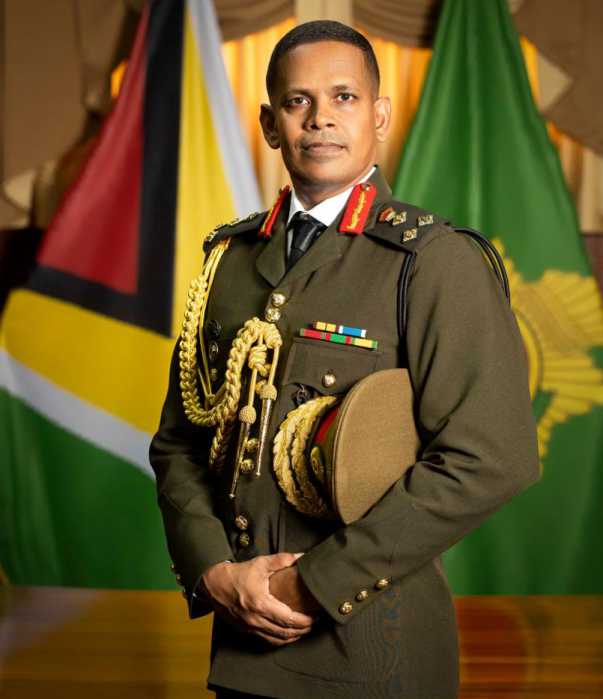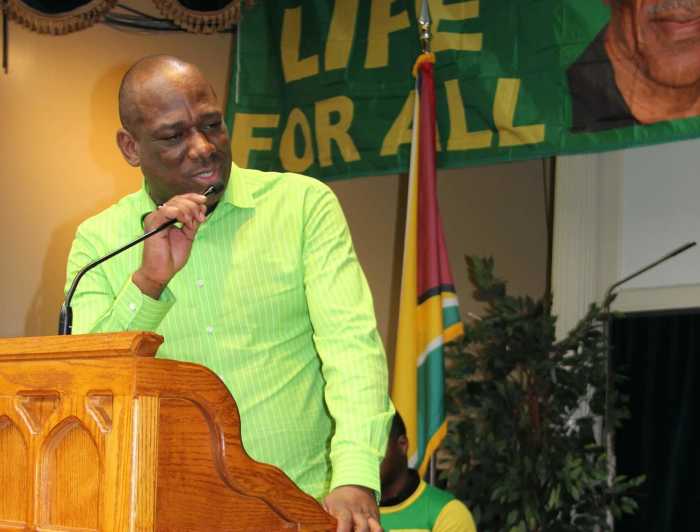So, wouldn’t it be something else again if, following this squeaker of a win that ushered him into the presidency of Guyana in the May 11 elections, David Granger ultimately has himself a good, substantive run as the country’s leader? Ascending to office on the strength of the few thousand votes and one-seat plurality that separated the Granger-led coalition from the once seemingly invincible People’s Progressive Party (PPP), is hardly what one might call a solid mandate. Still, for Granger and his colleagues to have been declared victors by any margin was no small accomplishment. For inspiration, the new president might look at the arc (if not necessarily the political ideology) of Angela Merkel who, when she first became German chancellor in 2005, could do so only after protracted maneuvering across party lines, but is today considered one of the world’s most powerful leaders.
Overall, never mind how the results broke down, the biggest winners following the election were clearly the people of Guyana. From all we could gauge, the Guyanese electorate could take a well deserved bow for the evidently mature manner in which it rose to the occasion in what everyone knew to be a pivotal exercise. That international observers on the ground gave Guyana high marks for how the election was conducted was perhaps the most telling indicator of Guyana stepping up and doing it right. Skepticism about the process, because of what seemed an inordinately long interval awaiting results following the vote, more or less dissipated once the results were eventually announced, and one appreciated the Electoral Commission’s opting to be ultra meticulous, with the competing parties involved in a battle of such nail-biting closeness. Most of all, though, that 72 percent of registered voters cast their ballots was a bold assertion of the people’s responsibility in a free society, placing Guyana in the esteemed position of a model practitioner of participatory democracy.
In the election aftermath, what has bumped up against, and tarnished, this exemplary rollout of democratic practice has been the response of the PPP. The party, once led by the legendary Dr. Cheddi Jagan, has been sending early signals of not intending to walk a path of graciousness into its new opposition role. It disputed the election results, which is hardly surprising in so tight a contest. But the PPP’s claim of the election having been “rigged” is what causes us to wonder from what strange place is the party throwing these darts. A governing party suggesting that the party or parties in opposition “rigged” an election has to be among the most bizarre of allegations ever made following an election…in Guyana or anyplace else. As a fitting theater-of-the-absurd entry, it equates with the Kamla Persad-Bissessar government in Trinidad and Tobago moving and passing in Parliament a motion of no confidence in the Leader of the Opposition.
The mind-boggling PPP claim of a rigged election was front and center again this week, when the party formally declined an invitation from the new president to participate in the official observance of the country’s Independence anniversary. First and foremost of the reasons given by the PPP for refusing to participate was the “blatant rigging” that went down in the elections. If there’s no one in the PPP high command capable of disabusing its authors of the notion that this line of attack makes sense — how ridiculous it is for members of a just-departed government to insist that the election ousting them was rigged — it doesn’t say much for smarts within the party. The party’s indication that it would organize Independence celebrations of its own was a disquieting offshoot of what looked to be an enviable snapshot of the polity and the political class harmoniously intertwined.
For the PPP to remain committed to that course of non-cooperation would of course undo much of what looked so good about Guyana’s changing of the guard in adult fashion. A coalition government with such a slender majority as Granger’s is, even in a more friendly environment, faced with much tricky terrain to navigate. A PPP opposition determined to frustrate and impede governance would only make things more challenging for Granger’s administration. One hopes that the PPP, after this initial recalcitrance, would be inclined toward being a constructively engaged opposition. They would do so, of course, if guided by a sense of service to all of Guyana and not just the folks who cast votes for them. All of the points earned in that admirable voter turnout on May 11 could be frittered away if some sour-grapes politicians realize that, when the people aren’t directly involved, messing with the process is easy.

























